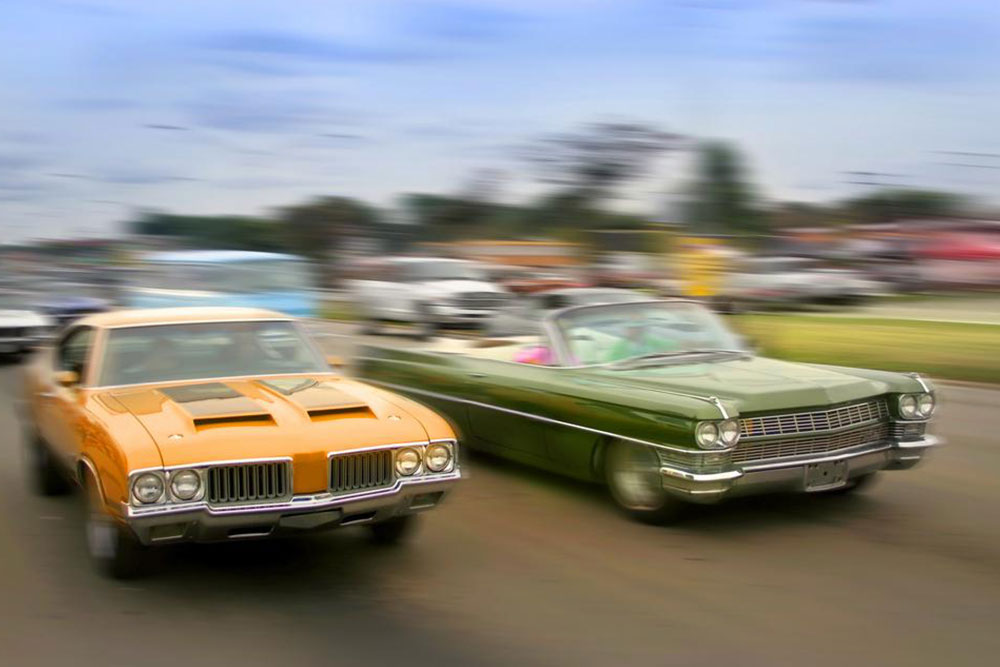Top 10 classic American muscle cars of all time
The small, two-door, high displacement engine powered muscle cars have long remained the classics on the American roads and in the auto industry. They have made heads turn with their roaring engines and looks. Here is a list of America’s top ten classic muscle cars picked because of their popularity among passionate car lovers as well as their demand at used car auctions and dealerships across the country.
- The 1967 Pontiac GTO:

Back in 1964, by fitting a V8 engine of 389 cubic inches into a Pontiac Tempest, the Pontiac engineers defied the informal ban that General Motors had against putting any engine larger than 330 cubic inches in a small car. A good number of car lovers claim that the 1967 Pontiac GTO is the car that gave birth to the muscle car segment. 1968 Plymouth Road Runner Hemi: The Road Runner is considered to be a definitive muscle car because this explosive vehicle is capable of delivering raw power and torque. This legendary car is equipped with a 425-hp, and 426 cubic inch V8 Hemi engine, making it ideal for drag racing. The 1969 Chevrolet Camaro ZL1: With just 70 units of this car built, this rare bird is much wanted by car auctioneers, collectors, and dealers across the world. It was originally equipped with a 427 horsepower iron block, which is the most powerful engine ever built by Chevrolet. It is on our list of the top ten American muscle cars for this reason. It is one of the rarest Chevrolet cars produced till date. 1969 Ford Mustang Boss 429: One can think of Ford Mustangs as a brand of muscle cars by itself. It has been ruling the roads for half a century. The 429 cubic inches, 375 horsepower V8 engine equipped Boss 429, is one of the rarest models for car collectors as Ford produced just 1400 units. 1969 Ford Fairlane/Torino Cobra: Equipped with a performance package of a standard 335 horsepower, Holley 4BBL, 428 V8 engine, there were only 3000 units of the “Cobras” manufactured. It came in two body styles — the hardtop and the sports roof fastback. 1970 Buick GSX Stage 1: Although Buick was late in entering the muscle car market, the GSX package has been one of the best in its era. With just 687 GSX units built, 488 units were sold in stage 1, and the car was given some tuning later on, which gave it some real power. The 1970 Plymouth Hemi Barracuda: Offered in two engine choices of six and eight cylinders, the “Cuda” is considered as the top muscle car of all times. Revving up 425 horsepower, the Cuda was tailored for high acceleration as well as superior suspension. 1970 Chevrolet Chevelle SS 454: With bulged hood and swept-back roofline, there are two versions of this Chevrolet vehicle which offer either V8 360 horsepower or LS6 450 horsepower. The Holley four-barrel carburetor put the Chevelle SS 454 in the forefront as one of the most powerful muscle cars of all times. 1968 Dodge Charger R/T: With its irresistible design, sleek body, hidden headlights, exemplary handling with a heavy-duty suspension, and a powerful V8 engine offering 375 horsepower, the Dodge denoted that this car could be used for drag racing with “R/T” designation. It also came with an option of a Hemi engine offering more torque and power. The 1949 Oldsmobile Rocket 88: Credited for starting the craze with drag races, this 1949 classic is called the grandfather of muscle cars. By equipping a lightweight Rocket 88 body with a V8 engine, Oldsmobile created a sensation by kick-starting a new genre of modern high performing cars with high compression, and a V8 engine. This vehicle, which is often called the “Rockets,” is considered one of the top ten American cars.
Disclaimer:
The content provided on our blog site traverses numerous categories, offering readers valuable and practical information. Readers can use the editorial team’s research and data to gain more insights into their topics of interest. However, they are requested not to treat the articles as conclusive. The website team cannot be held responsible for differences in data or inaccuracies found across other platforms. Please also note that the site might also miss out on various schemes and offers available that the readers may find more beneficial than the ones we cover.